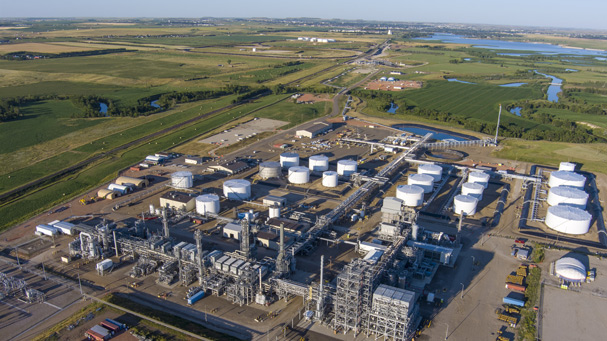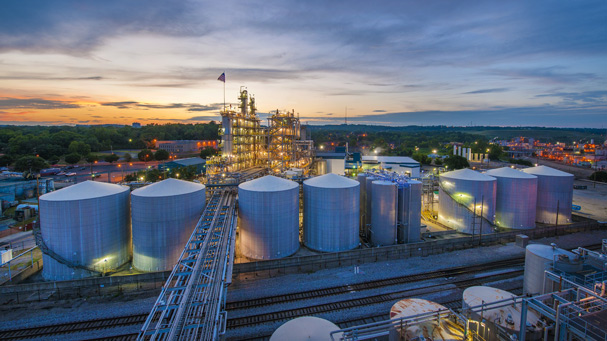Portfolio

Along with Martinez Renewables, we have several other renewable fuels investments, which are outlined below. We are committed to reducing the carbon intensity of the fuels we manufacture, and renewable fuels are helping us achieve this goal.
Martinez Renewables
- Location: Martinez, California
- Ownership: Joint venture with Neste
- Fuel: Renewable diesel and other renewable fuels
- Capacity: Approximately 730 million gallons per year
- Timeline: Began operations in 2023 and achieved full capacity by year-end 2024

Green Bison Soy Processing Facility
- Location: Spiritwood, North Dakota
- Ownership: Joint venture with ADM
- Fuel: Supplies refined soybean oil to MPC as feedstock for renewable diesel production
- Capacity: Approximately 600 million pounds per year to support annual production of a targeted 75 million gallons of renewable diesel
- Timeline: Construction broke ground in 2022, and the facility came online in the fall of 2023 as the first dedicated soybean processing plant in North Dakota

LF Bioenergy
- Locations: Developing a portfolio of renewable natural gas (RNG) production facilities on U.S. dairy farms, including the first facility in Lawrence, New York
- Ownership: Hold a 49.9% equity interest in LF Bioenergy
- Fuel: Renewable natural gas
- Capacity: Planned portfolio’s production capacity has the potential to reach over 6,500 MMBtu per day by the end of 2026
- Timeline: Interest acquisition announced in 2023 as part of an agreement that included the potential for additional investment

Additional Renewable Fuels Commitments
- Credits generated under the California Low Carbon Fuel Standard (LCFS) and the federal Renewable Fuel Standard (RFS) are creating demand for renewable fuels – produced from such renewable feedstocks as corn oil, soybean oil and animal fats. The demand for renewable fuels is already high and is expected to continue growing based on the current credit systems as well as additional credit systems that are under consideration in other states and countries.
- MPC is pursuing a 30% reduction in Scope 1 and 2 greenhouse gas emissions intensity from 2014 levels by 2030. Progress toward this goal prompted us to extend the target to a 38% reduction from 2014 levels by 2035.
Want to know more?
We are committed to transparency about our sustainability performance. Our Sustainability Report and Perspectives on Climate-related Scenarios report provide in-depth looks at how Marathon Petroleum is positioning for the future.



